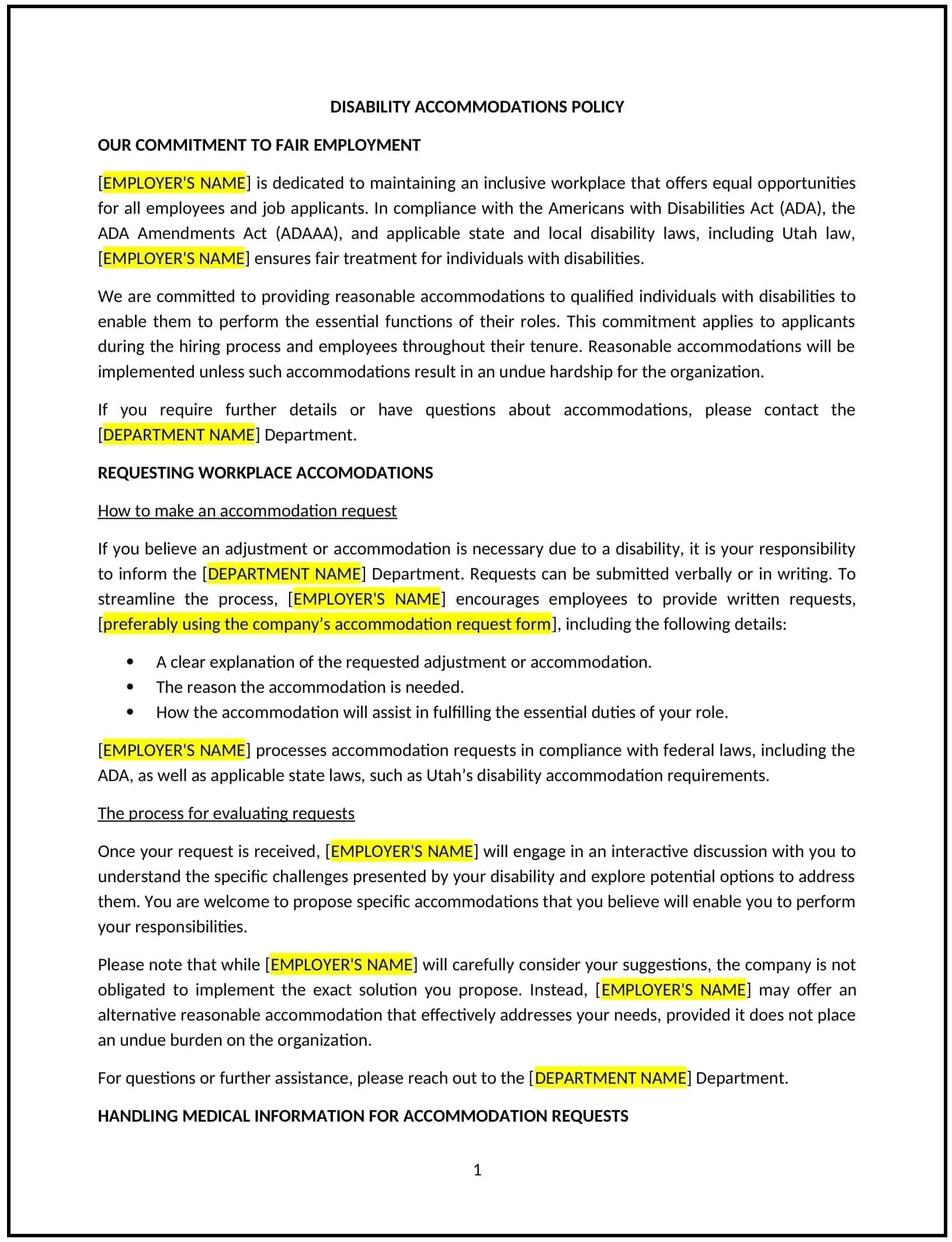Disability accommodations policy (Utah): Free template
Got contracts to review? While you're here for policies, let Cobrief make contract review effortless—start your free review now.

Customize this template for free
Disability accommodations policy (Utah)
This disability accommodations policy is designed to help Utah businesses provide reasonable accommodations for employees with disabilities. It outlines procedures for requesting accommodations, evaluating requests, and ensuring compliance with federal and state laws, including the Americans with Disabilities Act (ADA).
By adopting this policy, businesses can support inclusivity, enhance employee satisfaction, and align with general best practices for workplace accessibility.
How to use this disability accommodations policy (Utah)
- Define accommodations: Explain what constitutes reasonable accommodations, such as modified work schedules, assistive technology, or workspace adjustments.
- Establish request procedures: Outline the process for employees to request accommodations, including required documentation.
- Evaluate requests: Provide guidelines for evaluating accommodation requests and determining their feasibility.
- Implement accommodations: Specify steps for providing approved accommodations and monitoring their effectiveness.
- Train employees: Educate managers and employees on disability rights, accommodations, and the importance of inclusivity.
- Monitor compliance: Regularly review accommodation requests and outcomes to ensure adherence to the policy.
- Review and update: Assess the policy annually to ensure it aligns with evolving laws and business needs.
Benefits of using this disability accommodations policy (Utah)
This policy offers several advantages for Utah businesses:
- Supports inclusivity: Demonstrates a commitment to creating an accessible and inclusive workplace.
- Enhances employee satisfaction: Helps employees with disabilities perform their jobs effectively and feel valued.
- Aligns with legal requirements: Helps businesses comply with federal and state disability laws, such as the ADA.
- Reduces legal risks: Minimizes the risk of discrimination claims or lawsuits related to disability accommodations.
- Promotes diversity: Encourages a diverse workforce by removing barriers for employees with disabilities.
Tips for using this disability accommodations policy (Utah)
- Communicate the policy: Share the policy with employees and include it in the employee handbook.
- Provide training: Educate managers and employees on disability rights, accommodations, and inclusivity.
- Monitor compliance: Regularly review accommodation requests and outcomes to ensure adherence to the policy.
- Address issues promptly: Take corrective action if accommodations are not provided or are ineffective.
- Update regularly: Assess the policy annually to ensure it aligns with evolving laws and business needs.